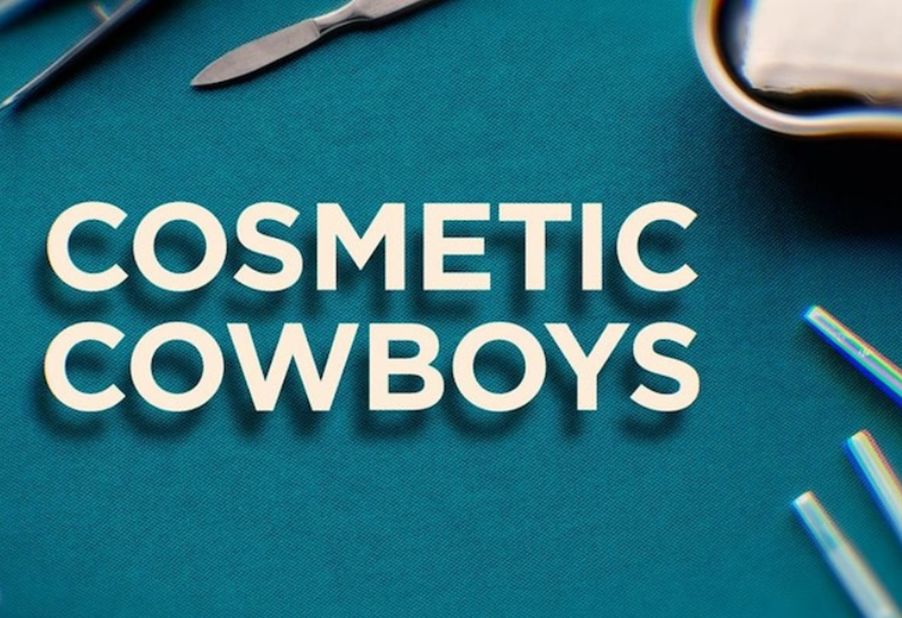Deformities, nerve damage, psychological trauma, loss of movement and function of limbs. It’s quite the list of allegations in what is shaping up as one of the country’s biggest-ever cosmetic surgery class actions.
The class action, filed against retired celebrity cosmetic surgeon Daniel Lanzer and six associates, has ballooned to almost 1,000 patients, with a date still to be set.
Maddens Lawyers filed the action almost 18 months ago, but the steady flow of new patients registering means the court is yet to close it off.
In the past month alone, 13 new patients signed up to the action, bringing the total to 972 patients. Lanzer and his associates deny any wrongdoing and are defending the case.
On Friday, the Victorian Supreme Court will hold a directions hearing which is expected to release a timetable of orders for the progress of the class action generally.
On the same day, down the road, Lanzer associate Dr Daniel Darbyshire will make a plea after being criminally charged with an alleged unprovoked critical injury assault of a 66-year-old man in December 2021.
“The assailant ran from the scene before being restrained by witnesses until police arrived,” Victoria Police said in a statement at the time.
Darbyshire is also a defendant in the class action and, according to Maddens partner Kathryn Emeny, there are at least 50 claims against him. Lanzer received just over 700 claims.
The class action was sparked after a joint Four Corners and Nine newspapers investigation in October 2021 uncovered serious hygiene and safety breaches and procedures by the Lanzer chain of clinics that left patients in extreme pain, requiring further medical treatment and suffering from ongoing physical and psychological issues.
Whistleblowers Justin Nixon and Lauren Hewish — who worked at Lanzer’s clinics — revealed some shocking practices, which helped put the spotlight on a sector that had been allowed to flourish with limited protections for patients.
Social media sensations
At the time Lanzer and associate Dr Daniel Aronov, who is also a defendant in the class action, were global social media sensations.
Lanzer had his own TV show along with 5.3 million TikTok followers, while Aronov had almost 13 million followers, thanks to some outlandish posts, including holding up a hunk of a female patient’s flesh cut from her belly and showing it to her while she is still on the operating table awake.
Days after the expose Lanzer retired and departed for Israel.
It sparked a series of reviews into the doctors and the broader sector given failed regulations and laws that allowed questionable facilities for operations and doctors with a basic medical degree or limited surgical training to call themselves cosmetic surgeons — even though they aren’t registered specialist surgeons, like plastic surgeons, who receive eight to 12 years of postgraduate surgical training.
Earlier this month some changes finally came into effect, but it was more akin to a nip and tuck rather than a full facelift.
They included a requirement to get a referral from a GP, psychological screening and a long overdue crackdown on social media, including strict guidelines on the level of spruiking that’s allowed.
Another change in the pipeline is the protection of the title “surgeon” to stop practitioners with a basic medical degree or limited surgical training from calling themselves cosmetic surgeons, unless they get an endorsement.
Not surprisingly, the introduction of an endorsement has many plastic surgeons up in arms, including the Australasian Society of Aesthetic Surgeons (ASAPS), which sent two co-signed open letters to the federal and state health ministers urging a rethink.
“It undermines Australia’s established surgical standards and legitimises the activities of unscrupulous operators who have knowingly performed invasive surgery on vulnerable patients without the required training,” they wrote.
Offering endorsements is a fraught debate as some practitioners believe that despite the fact they may not have the appropriate postgraduate training, they have been performing cosmetic procedures for decades and therefore should be eligible for an endorsement.
It’s an understandable position for them to take but it muddies the waters and makes an already complex system even more difficult for patients.
Cosmetic cowboys
Despite the changes, cosmetic cowboys are still conducting surgery in this $1.4 billion industry.
Those unlikely to get an endorsement have already started hedging their bets and reinventing themselves with fancy new titles such as aesthetic proceduralists. It means they can still perform surgeries without Australian-accredited surgical training.
And when it comes to where the surgeries take place, change is slow.
Standards vary across the states, including the types of procedures that can be done in unregistered facilities.
This was supposed to change, but on June 28 the Medical Board of Australia issued a statement saying it had decided to “defer the requirement that medical practitioners only perform cosmetic surgery in accredited facilities or in facilities that are registered with an Australian Commission on Safety and Quality in Health Care (ACSQHC) approved accrediting agency and have started working towards accreditation.”
The industry needs to get its act together fast on this. Just ask one of four representative plaintiffs of the class action, Tina Lombardo, who ended up in the ICU after she was found unconscious from significant blood loss following a liposuction and a tummy tuck procedure in November 2021.
Lombardo had day surgery and was discharged soon after and booked into a hotel as the surgery was not performed in a hospital with 24-hour care. When things started to go wrong in the middle of the night, nobody answered their calls.
The doctor who did her liposuction procedure was Aronov.
The final words should be left to whistleblower Justin Nixon, who is worried that after all the revelations more needs to be done. “As it stands not enough has been done to address the inadequate facilities that cosmetic surgeries were and potentially still are taking place in,” he says.
“There’s been no engagement from the regulators with the whistleblowers as to how best to mitigate future harm, which I think is a key flaw in the reform schedule.”

